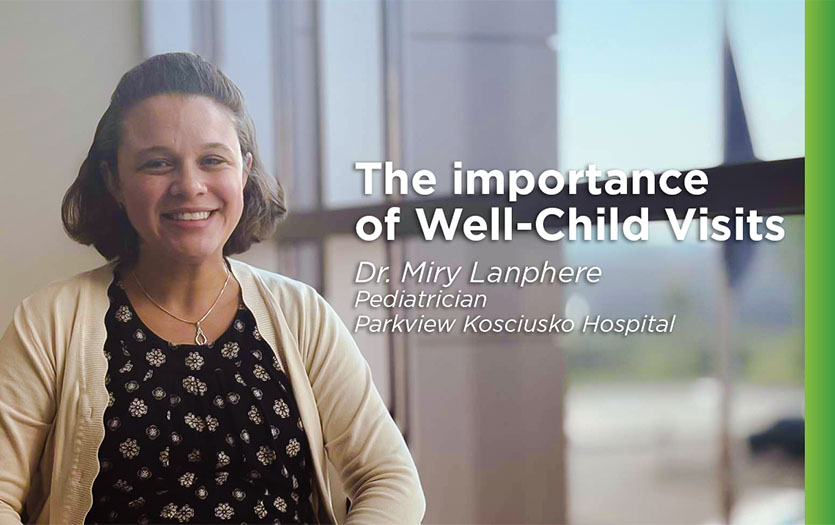
Fad diets often encourage restriction and deprivation - two characteristics that can lead to a host of health problems. Despite these facts, many still gravitate toward a “quick fix” solution for weight loss. We asked Ryan Singerman, DO, PPG - Weight Management & Bariatric Surgery, to shed some light on the subject and provide guidance on these popular diets that seem just too good to be true.
Are fad diets helpful in losing weight?
That's a complex question with an equally complicated answer. Any calorie restriction or reduction in what you usually eat will result in weight loss. If someone normally consumes hamburgers, French fries, sugar-sweetened beverages, and 2-3 portions more than recommended and then starts following a diet that significantly streamlines their choices or the amount of food they're eating, then yes, they will see weight loss. But the struggle with fad diets is that they are not sustainable. For example, individuals who try to stick to a specific diet for the long term often find that they get tired of it, or it causes other physical and mental health problems like gastrointestinal distress or anxiety. Another issue with fad diets is that some may not even be supplying you with appropriate nutrition, which can be dangerous and harmful. So, before starting anything new, you should discuss it with your provider to ensure it's an appropriate step to reach your goals rather than following something you saw on the internet.
Why do people often gain weight after a fad diet?
With diets in general, calorie restriction and loss of muscle mass can cause your body's metabolism to slow down, making it easier to regain weight once you return to your usual eating pattern. Also, if your financial situation changes, you get bored, or you encounter other challenges that make it difficult to adhere to the diet, you will likely go back to eating the way you did before you began the diet. Unfortunately, when that happens, all the weight you lost (and then some) will come right back.
We used to think that a fat cell was nothing more than a little storage vehicle for energy. If you overeat one day, you gain a fat cell, and it stores the excess energy in it. If you don't eat enough the next day, the fat cell shrinks, gives up its energy and goes away. Well, that is true to a point, but it's also more nuanced than that. The body has about 400 different hormones that regulate weight; of those hormones, we only have about 10 that help us lose weight. So, if you're doing the math, that means there are about 390 hormones that make you gain or maintain your body weight.
Over the years, we've learned that a fat cell is one of the single most hormonally active organs in the body, and many of those hormones that regulate your weight are produced by your fat cells. Their job, their intent, is to help conserve energy and keep you whole and prevent weight loss. They want to protect their longevity. So, when you try to lose body weight, you will do okay for a while under a calorie restriction, but then that body weight and weight loss start to slow down, causing you to plateau even though you haven't stopped what you were doing to lose weight in the first place. This happens because the human body will try to reduce the waste lost by slowing the amount of calories it burns each day. It does this by making you feel hungrier, crave certain foods and feel more tired, so you burn less energy. It does this because it's trying to slow down or stop weight loss.
Are there any beneficial fad diets?
Anything you do temporarily will have minimal benefit. If you are trying to lose or maintain your body weight, you should approach it as a healthy lifestyle change for the long term, not a quick fix to sheds pounds over a 2 to 4-week period. That said, some diets like keto, paleo, whole food, plant-based, low carb and gluten-free may have some good data behind them. There may be some benefits for certain patients, but that's something that you need to sit down and explore with your provider. It's not a one-size fits all approach. There are 57 different types of obesity, which means that what works for one person won't necessarily work for you or the next person. There's so much variability that comes with weight loss, so you have to think about that and many other factors when considering these diets.
If someone strictly wants to lose weight and get healthier, what should they do first?
Before you look at macro calories or fad diets, the first and simplest thing you can do is understand how many calories a day you are currently eating and how many you should be eating to be healthy. The easiest way is to determine your basal metabolic rate (BMR). Your BMR is the rate at which calories are used for essential life functions, including breathing, blood circulation, body temperature regulation, and more, but not extra energy needed for physical activity. You can find your BMR by using a basal metabolic rate calculator. It will give you a rough idea of how many calories you need daily to maintain normal body functions. However, if you are curious about the number of calories you should eat to lose weight, it's best to speak to a registered dietician or medical provider.
How can someone stop the fad or yo-yo dieting cycle?
Fad diets and yo-yo dieting can be extremely harmful because that pattern of rapid weight loss and rapid weight gain is physiologically damaging to the body. It promotes general inflammation and can increase someone's risk of developing diabetes. The challenging fact is that only about 10% of people successfully lose body weight and maintain a healthy lifestyle on their own. The other 90% will need some form of assistance to reach their goals. That help can vary and include guidance on any or all of the following:
- Diet
- Nutrition
- Exercise
- Accountability
- Lifestyle management
- Psychological assistance or counseling
- Medical intervention
We want people to create that healthy lifestyle of appropriate calories that will hold them indefinitely, and that can be challenging. But that's where we can help.
Key takeaway
In general, dieting is not healthy. You should not approach losing weight as a quick fix or short-term remedy. You have to look at it like a dedicated journey to getting healthy and changing your lifestyle. However, if you often run into challenges and roadblocks, you may need to seek professional help from board-certified providers. They can help you find what works for you and is sustainable.



